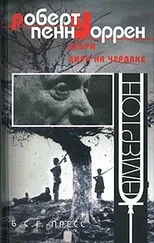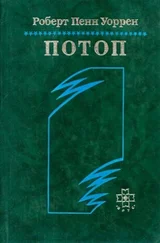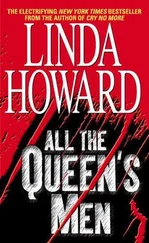Роберт Уоррен - All the king's men
Здесь есть возможность читать онлайн «Роберт Уоррен - All the king's men» весь текст электронной книги совершенно бесплатно (целиком полную версию без сокращений). В некоторых случаях можно слушать аудио, скачать через торрент в формате fb2 и присутствует краткое содержание. Жанр: Современная проза, на английском языке. Описание произведения, (предисловие) а так же отзывы посетителей доступны на портале библиотеки ЛибКат.
- Название:All the king's men
- Автор:
- Жанр:
- Год:неизвестен
- ISBN:нет данных
- Рейтинг книги:4 / 5. Голосов: 1
-
Избранное:Добавить в избранное
- Отзывы:
-
Ваша оценка:
- 80
- 1
- 2
- 3
- 4
- 5
All the king's men: краткое содержание, описание и аннотация
Предлагаем к чтению аннотацию, описание, краткое содержание или предисловие (зависит от того, что написал сам автор книги «All the king's men»). Если вы не нашли необходимую информацию о книге — напишите в комментариях, мы постараемся отыскать её.
All the king's men — читать онлайн бесплатно полную книгу (весь текст) целиком
Ниже представлен текст книги, разбитый по страницам. Система сохранения места последней прочитанной страницы, позволяет с удобством читать онлайн бесплатно книгу «All the king's men», без необходимости каждый раз заново искать на чём Вы остановились. Поставьте закладку, и сможете в любой момент перейти на страницу, на которой закончили чтение.
Интервал:
Закладка:
To Justine and David Mitchell Clay
Introduction to the 1974 English Edition
In August 1946, one of my novels, _All the King's Men__, was published, and since I had lived in Louisiana during the last phase of the regime of Huey P. Long, and since the hero of my novel is a politician who, like Long, gests himself gunned down in his capitol, it was widely surmised that my book was designed as a fictionalized biography of the Kingfish himself. The book was, in fact, declared by several reviewers to be an apologia for fascism.
After all these years I have little inclination to reopen old controversies about _All the King's Men__ – controversies which, certainly, could be of little interest to an English reader. But Long and the world he dominated provided the original stimulus for the writing of the novel, and did suggest some of the issues that emerge there. Furthermore, since Long and his world are so indigenously American, I should, perhaps, say something on that topic to the prospective English reader.
The life of Huey P. Long does not quite represent the classic American success story, but it is close enough to that to lend plausibility to the fiction he sedulously fostered. For example, though no born in the log in the log cabin mandatory for the myth, he was born in a log house – which, though commodious, could be conveniently for his political purposes. But Long was, indeed, reared in a thin-soiled back-country parish (as counties are called in Louisiana) where, even though by local standards his family was prosperous, he knew the sights and small of poverty; and he was clear-headed enough to sense early that, for all the respect the Long family might command in the parish of Winn, they would, in the regions dominated by the planter class, or among the rich bankers, merchants and lawyers of New Orleans, be regarded as well below middling.
But middling was not for Huey P. Long. From the beginning of his political career, which is to say from the time he left off short pants, he dramatically identified himself with the dispossessed, and to teach the dispossessed their own power became both his method and his mission. His motives were, no doubt, mixed. And it is doubtful that he understood them – or, even, gave them much analytical thought. He instinctively grasped the fact that for him the low road would be the high road.
At the age of twenty-one, Huey entered upon his mission. He had, he was later to say, come down the steps of the courthouse where he had stood before the Supreme Court of Louisiana to be formally to the bar, "running for office." He had had a minimal education – bad schooling in the town of Winnfield, one year at the University of Oklahoma, and one year, of the three-year course, in the Law School of Tulane University in New Orleans. But from childhood, like Lincoln, Mark Twain, and other notable American autodidacts, he had read whatever books he could lay hand to in his unbookish world, and he never forgot anything he read and never failed to reflect on it. He knew the Bible well – as the myth requires – Shakespeare. A favorite play was, in fact, _Julius Caesar__. Along with the novels of Balzac, Scott, Hugo, Dickens and Cooper, he read the autobiography of that perfect egotist Cellini, and biographies of Napoleon and, again, Caesar. Beyond books, he had studied human nature on the streets of the little courthouse town of Winnfield, and in the hard school of door-to-door selling (as a boy he boasted that he could sell anything to anybody).
Now, as a man, he was brash to a high degree, boiling with energy and boundless ambition, with his sights already set on noting else that the White House. He knew law, enough at least to make him rich at an early age, not merely what he had gleaned from the scattering of courses at Tulane, but all that his steel-trap mind seized in a year of ferociously self-disciplined cramming with time out for little beyond eating and sleeping. He was a wit, a deliberate vulgarian, a crusader and a redeemer, an orator capable of high style or low, a philosopher of politics, and an amoral schemer. He was, in short, a creature of contradictions, but every item fell into its logical place in his manic drive toward power. He was the perfect political animal.
The world of Louisiana was the perfect place for the perfect political animal. Here, in the "banana republic of the United States," as it has been termed, political maneuvering was regarded as a sporting event, and even the politician steeped in corruption might be regarded, he had humor and style, as more of a folk hero than a public menace. At the same time, in the upper reaches of society, politics presented a façade of respectability, for the real power, for many generations, had rested in the hands of a tight oligarchy of rich and sometimes well-born, and even well-meaning, planters, merchants and corporation lawyers. The state was their fief, lock, stock and barrel, and by divine dispensation. Roads were foul, schools farcical, illiteracy a national scandal, per capita income abysmal and social services nonexistent, but the oligarchs had always been able to buy off or blunt the occasional demagogue or reformer who sought to exploit, or to remedy, the situation.
Huey Pierce Long was not, however, a mere demagogue or a mere reformer. He saw the world of Louisiana steadily and saw it whole, and he saw it in the harsh light of the immediacy. He was without illusion or sentiment. He wasted no time on the standard demagogic appeals to the Lost Cause, the dogma of White Supremacy, or the sanctity of Southern Womanhood. He had even less time for the rhetoric of the reformer who put his trust on the goodness of human nature or the efficacy of unassisted virtue. The role of the prophet unarmed never held any attraction for him.
The oligarchs of Louisiana were the natural prey of the young man who came down the courthouse steps running for office. They, for all their experience of power, were the dupes of illusion: they believed in all the big words, old ideas and rituals of their world, and, most fatally of all, believed that their world would never change. They could not see a fact before the face, the main fact not visible to their bemused gaze being the one-gallus, wool-hat, scrabbled farmer sitting on the doorstep of his cant-wise shack with a rusted-down barbed-wired fence separating his bare yard from a road hock-deep in dust or mud, according to the season.
So by 1928, Huey was Governor, and was beginning to build his roads, free bridges, schools, hospitals and universities, and to establish various social services. By 1932, he was United States Senator. By 1935, by methods that would not always bear legal or moral scrutiny, he had liquidated all serious opposition in Louisiana; had centralized, to a degree never paralleled in ant state, all power in, for all practical purposes, his own hands, executive, legislative and judicial; had gained a reputation that, on the mere rumor of a speech by Huey, would pack the galleries of the Senate Chamber of the national capitol; and had, by his charisma and radical economic program, made himself the only figure that Franklin Delano Roosevelt, himself no mean or compunction-bound operator, feared in the impending presidential election of 1936. By September 8, 1935, in the marble hall of the skyscraper capitol he had built in Baton Rouge, he was shot down by an assassin. By September 10, he was dead.
There were two versions of the dying man's last words. The first version: "What will my poor boys at L. S. U. [the Louisiana State University] do without me?" The second, and more generally accepted version: "God, don't let me die. I have so much to do." One wonders what set of sounds could have reasonably suggested both interpretations. The only thing that the two interpretations have in common has no relation to linguistic and rhythmical questions; it is the implication that the speaker was dying as a martyr to his humanitarian ideals.
Читать дальшеИнтервал:
Закладка:
Похожие книги на «All the king's men»
Представляем Вашему вниманию похожие книги на «All the king's men» списком для выбора. Мы отобрали схожую по названию и смыслу литературу в надежде предоставить читателям больше вариантов отыскать новые, интересные, ещё непрочитанные произведения.
Обсуждение, отзывы о книге «All the king's men» и просто собственные мнения читателей. Оставьте ваши комментарии, напишите, что Вы думаете о произведении, его смысле или главных героях. Укажите что конкретно понравилось, а что нет, и почему Вы так считаете.





![Роберт Уоррен - Рассказы [Компиляция]](/books/419993/robert-uorren-rasskazy-kompilyaciya-thumb.webp)


